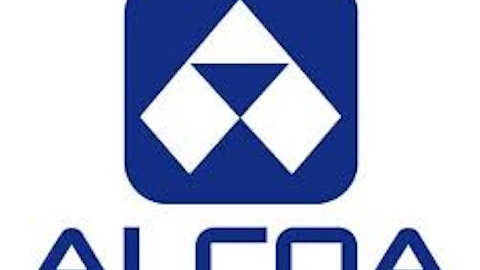However, the other thing to consider, as Alcoa points out in its position statement, is that price increases could be as much as 54% under some scenarios if LNG exports hit 12 billion cubic feet per day. That’s just half of the capacity represented by applications that have already been filed, which you can see from the following map:

Source: FERC website
The real question is, are rising natural gas prices are such a bad thing? You’ll note that, among the projects on that list, there is one by Exxon Mobil Corporation (NYSE:XOM). The company’s Golden Pass Terminal, if approved, would enable the energy giant to sell natural gas overseas at higher prices. That means more drilling jobs, construction jobs and, of course, profits for investors. As a widely held stock by both mutual funds and exchange traded funds, those profits will touch many Americans.
On the other hand, higher natural gas prices could hurt the consumer, and has the potential to derail our manufacturing renaissance. As you can see, this is a real political hot potato with clear winners and losers, with a lot of questions in between.
That’s one reason Nucor, which is completing the construction on a $750-million plant in Louisiana, isn’t taking any chances. The new plant uses natural gas to strip oxygen from iron ore to make direct-reduced iron. This, when combined with scrap, can make steel at a much lower cost than scrap alone. However, without cheap natural gas the economics aren’t as favorable.
The company has joined America’s Energy Advantage to help curb exports in order to keep natural gas prices down. Right now, access to low-priced natural gas is a huge competitive advantage for the company. That’s one reason why the company entered into a 20-year supply agreement with EnCana Corporation (USA) (NYSE:ECA) to lock in its gas costs. It won’t use the gas to fuel the plants; instead, it will sell the gas as a hedge against any price spikes in gas it buys locally.
The whole issue here is that there simply isn’t enough demand coming from these heavy users to produce enough profits for companies like Encana and Exxon Mobil Corporation (NYSE:XOM). It’s this classic battle of supply and demand that only has a clear solution depending on which side of the equation you stand on. If you’re invested in producers, then you want to see gas go higher. However, if you’re a consumer who looks at your utility bills, or is invested in heavy gas, you’ll favor curbing exports.
That’s what makes this such an intriguing issue to follow. Both sides are, of course, motivated by profits and, therefore, have a self-interest to protect. Not only that, but both have reasonable, if not compelling, arguments that deserve to be heard. Personally, I lean toward allowing exports, though my preference is to see us develop more ways to use it here at home.
The article LNG Exports: ExxonMobil Versus Dow Chemical originally appeared on Fool.com.
Fool contributor Matt DiLallo has no position in any stocks mentioned. The Motley Fool recommends Nucor.
Copyright © 1995 – 2013 The Motley Fool, LLC. All rights reserved. The Motley Fool has a disclosure policy.



